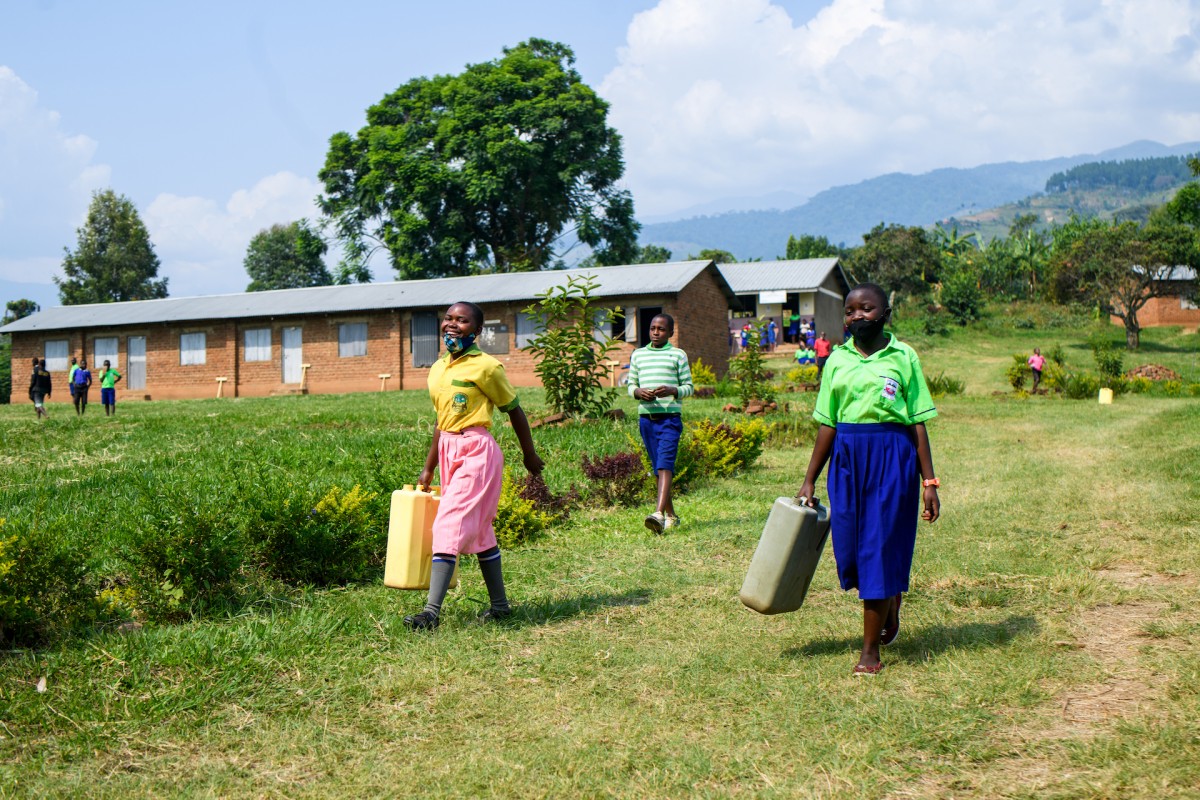Jane Kakyo - The empowerment of team work: women’s groups as vehicle for financial independence
'The income of our home-made soaps now enables us to pay schooluniforms and fees for our children, and menstruation products for our daughters.'

Liquid soap produced and sold by a women's group
Jane Kakyo, is member and secretary of the women’s group in Kabahango in the east of Uganda. The group was trained in soap making by JESE, one of Simavi’s partners in Uganda. And that’s how JESIKA detergent came to life: a liquid soap that is produced and sold by the women’s group.
Supporting a growing business
The group sell four jerry cans of their liquid soap per month in neighbouring villages and at local markets. To support the growing business, JESE is working closely with the group to arrange official registration at sub-county and district level. This will enable the group to access grants from local government development funds.
First steps into the business and opportunities to expand the product range
Jane Kakyo explains: ‘after successfully selling their first samples all 32 members of the group put in an equal amount to buy ingredients in Kampala (the capital of Uganda) and launch their business. They came up with the name JESIKA by combining the first letters of JESE, Simavi and Kabanhango.’
She further shares how the income from the soap enables most members to pay their children’s school fees and other financial contributions they are required to make at school. There is still room for growth, though, as not all members are able to fully cover the fees. As some community members prefer soap bars to liquid soap, she asked JESE to train the group in how to expand their product range.
'The income of our home-made soaps now enables us to pay schooluniforms and fees for our children, and menstruation products for our daughters.'
Financial literacy as a step towards economic independence
Financial literacy is a big first step towards economic independence for women which contributes to women’s ability to pursue their right to health. That’s why WASH & Learn programme is not only about improving water, sanitation and hygiene services. It also enables women to save together and take out small loans to finance entrepreneurship.

